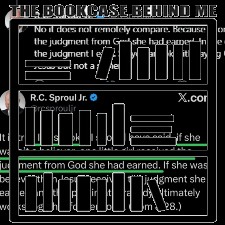Introduction
Pastor Brandon Warr introduces the topic of Christian burial and funerals. He is joined by:
- Pastor Fillmore Alvarez, a regular co-host
- Pastor Daniel Mensing from Faith Lutheran Church in Tigard, Oregon
- Jacob Glass, a layman from St. Patrick Lutheran Church
They discuss how the way Christians handle death and burial is a confession of faith. Pastor Warr notes it may seem like a “creepy” topic but is important to address from a Christian perspective.
The Importance of Christian Funerals
Pastor Alvarez shares how funerals were his first exposure to liturgy and ritual, coming from an evangelical background. In Christianity, funerals became an “equalizer” – kings and commoners had the same rites, unlike in pagan societies.
- In Christianity, funerals confess that we have the same Savior and heavenly destination
- Pagan funerals focused more on earthly status/accomplishments
- The way one is buried says a lot about who they were and what they believed
Biblical Perspective on Death and Burial
Pastor Mensing discusses relevant Scripture passages:
- Baptism: death and resurrection (Romans 6)
- Old Testament refers to patriarchs being “buried with their fathers”
- New Testament speaks of blessed rest for those who die in Christ
- For Christians, the grave is consecrated as a place to rest until the resurrection
A layman’s perspective is shared by Jacob Glass – as Lutherans, we can take comfort that Christ has conquered death for us.
Commercialization of the Funeral Industry
The discussion turns to how the modern funeral industry, starting in the 19th century, has tried to make death more “palatable” and commercially profitable. Changes include:
- Using the term “casket” instead of “coffin”
- Funeral “directors” instead of undertakers
- Euphemisms like “passed on” instead of “died”
- Preparing bodies used to be handled by the family;
- the Civil War popularized embalming so bodies could be transported
The Means of Burial
An extensive discussion on different methods of burial/body disposition and whether they are appropriate for Christians. Key points:
- No means of burial is inherently sinful, but some may not make a good confession of faith
- The body will decay either way; the focus should be on the resurrection
- More important than the method is avoiding practices that will unduly offend or trouble the grieving
- Traditional burial and cremation are generally acceptable; more unconventional methods should probably be avoided
- Other methods discussed: burial at sea, alkaline hydrolysis (aquamation), composting, cryonics, donation to science
When counseling someone preparing for their death, pastors should emphasize the resurrection, keep the means of burial simple, and help them make a clear confession of faith that will comfort their family.
Conclusion
Final thoughts from each participant:
- We must consider those we leave behind when planning our funerals
- Life and death are all part of the Christian’s confession of faith in Christ
- “Why do we mourn departing friends” – Christ calls us to himself in death





